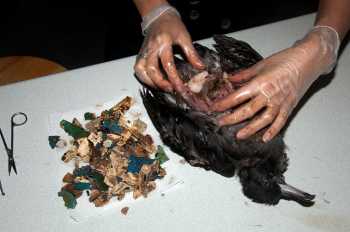Jennifer Provencher (Canadian Wildlife Service, Environment and Climate Change Canada, Gatineau, Canada) and colleagues have published in the open-access journal FACETS on recommended best practices for plastic and litter ingestion studies in marine birds, including procellariiform albatrosses, petrels and shearwaters.
The paper’s abstract follows:
“Marine plastic pollution is an environmental contaminant of significant concern. There is a lack of consistency in sample collection and processing that continues to impede meta-analyses and large-scale comparisons across time and space. This is true for most taxa, including seabirds, which are the most studied megafauna group with regards to plastic ingestion research. Consequently, it is difficult to evaluate the impacts and extent of plastic contamination in seabirds fully and accurately, and to make inferences about species for which we have little or no data. We provide a synthesized set of recommendations specific for seabirds and plastic ingestion studies that include best practices in relation to sample collection, processing, and reporting, as well as highlighting some “cross-cutting” methods. We include guidance for how carcasses, regurgitations, and pellets should be handled and treated to prevent cross-contamination, and a discussion of what size class of microplastics can be assessed in each sample type. Although we focus on marine bird samples, we also include standardized techniques to remove sediment and biological material that are generalizable to other taxa. Lastly, metrics and data presentation of ingested plastics are briefly reviewed in the context of seabird studies.”

Removing plastics from a corpse of a globally Near Threatened Flesh-footed Shearwater Ardenna carneipes, photograph by Ian Hutton
Reference:
Provencher, J.F., Borrelle, S.B., Bond, A.L., Lavers, J.L., van Franeker, J.A., Kühn, S., Hammer, S., Avery-Gomm, S. & Mallory, M.L. 2019. Recommended best practices for plastic and litter ingestion studies in marine birds: Collection, processing, and reporting. FACETS 4: 111-130. doi.org/10.1139/facets-2018-0043.
John Cooper, ACAP Information Officer, 07 June 2019

 English
English  Français
Français  Español
Español